 Petzlover
Petzlover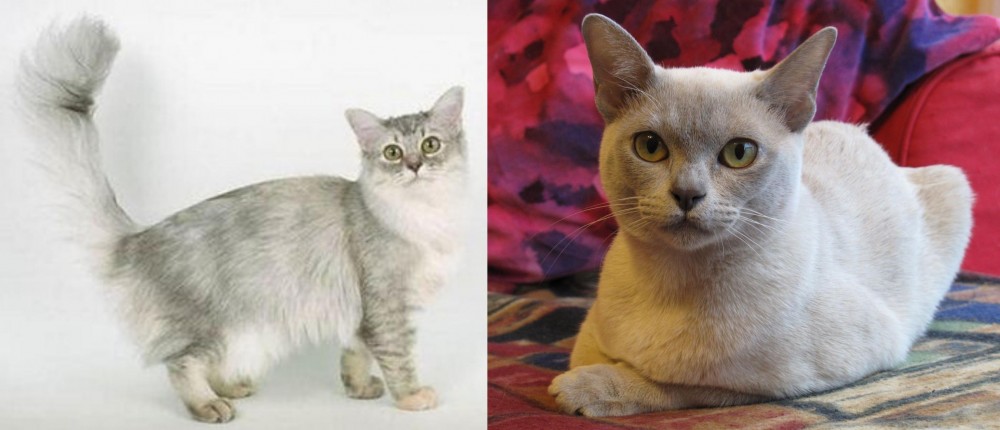 Asian Semi-Longhair is originated from United Kingdom but European Burmese is originated from Myanmar. Both Asian Semi-Longhair and European Burmese are having almost same weight. Both Asian Semi-Longhair and European Burmese has almost same life span. Both Asian Semi-Longhair and European Burmese has same litter size. Asian Semi-Longhair requires Moderate Maintenance. But European Burmese requires Low Maintenance
Asian Semi-Longhair is originated from United Kingdom but European Burmese is originated from Myanmar. Both Asian Semi-Longhair and European Burmese are having almost same weight. Both Asian Semi-Longhair and European Burmese has almost same life span. Both Asian Semi-Longhair and European Burmese has same litter size. Asian Semi-Longhair requires Moderate Maintenance. But European Burmese requires Low Maintenance
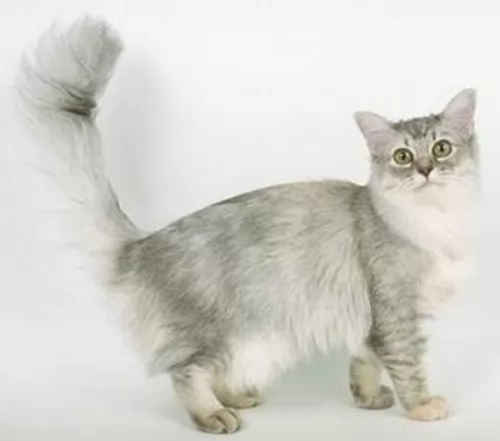 Similar to the Asian Shorthair, the Asian Semi-Longhair with its semi-long fur was developed in the UK in the 1980s and isn’t recognized by any U.S. registries.
Similar to the Asian Shorthair, the Asian Semi-Longhair with its semi-long fur was developed in the UK in the 1980s and isn’t recognized by any U.S. registries.
It is believed that the cat breed goes back to matings between the Chinchilla and Burmilla cats. This cat may not be recognized by any of the U.S. registries but it has recognition in the GCCF.
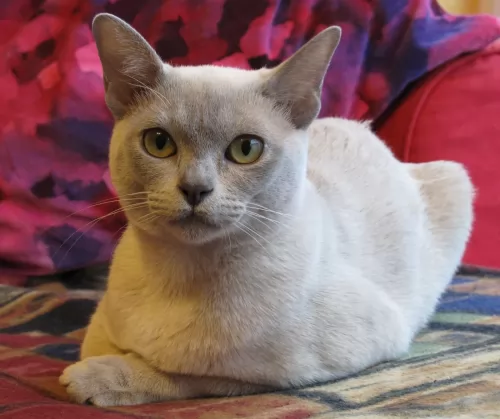 The European Burmese was developed in the 1960s when they were imported to England by British breeders.
The European Burmese was developed in the 1960s when they were imported to England by British breeders.
They were then crossed with red-point Siamese as well as British Shorthairs to expand the gene pool and number of coat colors.
In 1994, the cat was recognized by the Cat Fanciers Association and later by the Canadian Cat Association as well as the Cat Fanciers Federation and others as well.
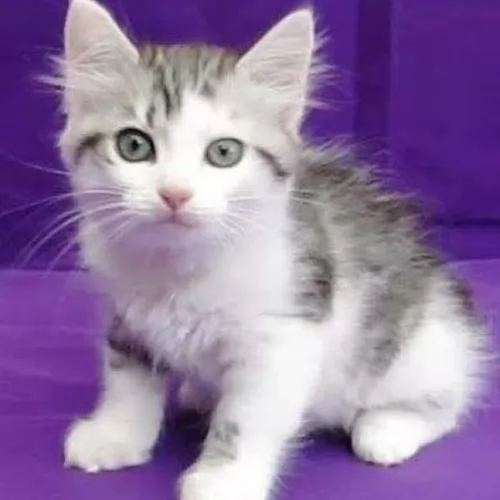 This beautiful cat is medium to large in size and can weigh up to 6 or 7kg. The body is compact, the face and eyes round with a slightly blunt snout. The ears are fairly small and pointed.
This beautiful cat is medium to large in size and can weigh up to 6 or 7kg. The body is compact, the face and eyes round with a slightly blunt snout. The ears are fairly small and pointed.
The luxurious silky coat comes in different colors and patterns such as black, brown, chocolate, blue and lilac, which happen to be the five main colors of this beautiful cat with his shiny green eyes.
The Asia Semi-Longhair is a gentle cat but curious and active. These are cats that become attached to their human owers and don’t like to share their humans with other cats.
They’re very talkative and they are therefore not the best breed to keep in an apartment. It’s also a cat that doesn’t like to be left on its own for long periods of time and will make a friend of children and other pets such as dogs if it means some companionship.
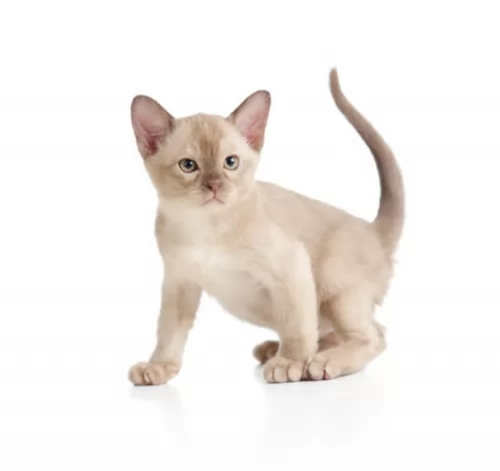 Your beautiful European Burmese cat is a small to medium-sized cat and both males and females will weigh between 3 and 5kg.
Your beautiful European Burmese cat is a small to medium-sized cat and both males and females will weigh between 3 and 5kg.
The cat’s coat is short and glossy and it comes in a number of different colors such as white, brown, cream, blue, red and tortoisehell.The cat has large, expressive eyes that are a yellow or amber shade.
Your European Burmese has a silky short coat and the coat will also only need to be brushed once a week to keep it in tip-top condition.
The European Burmese is a very affectionate, loyal ad intelligent cat, loving the companionhip they share with their human family.
They’re a great pet for families as they’re active and playful. They are also a cat breed that likes to bond with one particular family member more than others.
They’re also inclined to be lap cats, grabbing each opportunity to be stroked and petted. They will also be quite willing to become friends with other pets in the home and don’t like to be left alone for a long time.
They like having other pets around to keep them company and can become withdrawn if constantly left on their own.
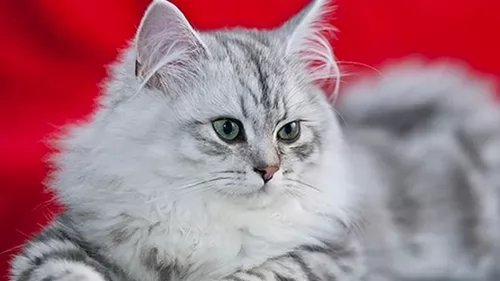 The Asian Semi-longhair is such a sociable, friendly cat and he loves his human family so much that he can’t bear to be separated from them. It is often referred to as being a dependent cat, as it absolutely hates being alone and does not want to be separated from the people he loves.
The Asian Semi-longhair is such a sociable, friendly cat and he loves his human family so much that he can’t bear to be separated from them. It is often referred to as being a dependent cat, as it absolutely hates being alone and does not want to be separated from the people he loves.
It’s not the type of cat to get if you work long hours and there is nobody else at home. It's the kind of cat that also gets on well with kids and dogs.
He is such a playful cat that even a yarn of wool will keep him amused for ages and he loves toys. For so much friendship coming from your feline friend, he deserves plenty of love and attention - after all, he is prepared to give you that.
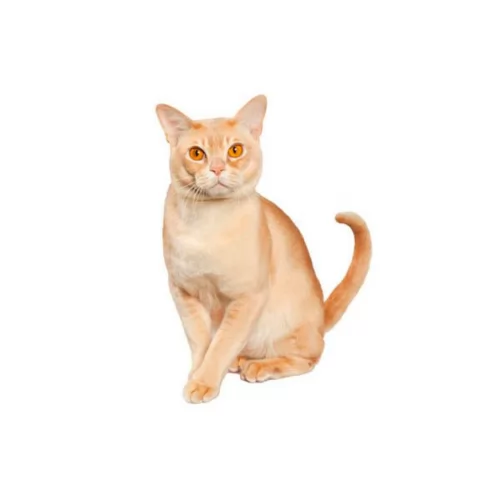 Your European Burmese has a sweet disposition and it is a loving, companionable cat. They enjoy the company of their human owners as well as other pets.
Your European Burmese has a sweet disposition and it is a loving, companionable cat. They enjoy the company of their human owners as well as other pets.
They can be quite vocal too and they don’t like being left alone. If you work all day, it will be a good idea to have another pet as a companion for the European Burmese.
The European Burmese loves to play and is a fun-loving, active, social cat. While they love their human family, they may not make the greatest pet for an inactive, single person as these cats actually seek out companionship.
A person unable to involve themselves with this cat, may well find it becoming depressed. These are cats that require a lot of interaction and attention, craving the attention of their human families.
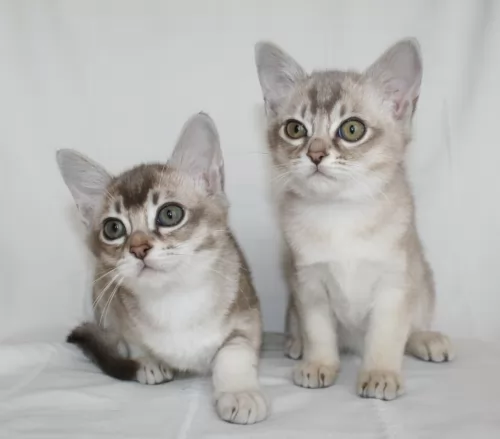 The Asian Semi-longhair is a robust cat, not prone to lots of health issues and he can reach up to 15 years of age.
The Asian Semi-longhair is a robust cat, not prone to lots of health issues and he can reach up to 15 years of age.
It doesn’t have any particular breed-specific diseases, but as with any cat, you want to be looking out for heart and periodontal diseases.
Also, hypokalaemic polymyopathy is a condition that results in muscle weakness and pain in your cat. The cause is low potassium and your pet's entire body can have muscle weakness.
Some other symptoms include being stiff, slow walking and an actual reluctance to walk. Some of the common causes of this illness include chronic kidney disease and poor diet.
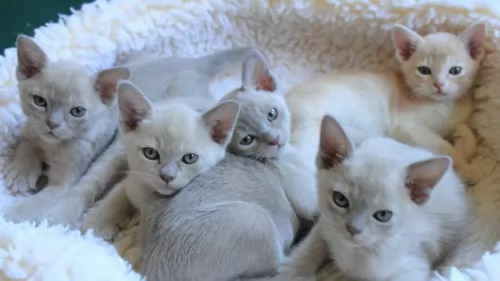 The European Burmese is a fairly healthy cat and is unlikely to cost you a lot in terms of vets fees.
The European Burmese is a fairly healthy cat and is unlikely to cost you a lot in terms of vets fees.
Just like with other cats, some of the common cat illnesses include developing diabetes mellitus. There have been some of these cats that ave been known to suffer from Feline Orofacial Pain Syndrome (FOPS).
It is a disease related to the teeth. Teeth problems are a common ailment with cats. With this particular problem, there is an unusual amount of pain when the cat's adult teeth begin to emerge. Your cat will be displaying a lot of licking and chewing motions. The symptoms do however go away once the adult teeth come in.
The cat will in all likelihood need to see the vet for pain medication and other treatments such as a potassium supplement.
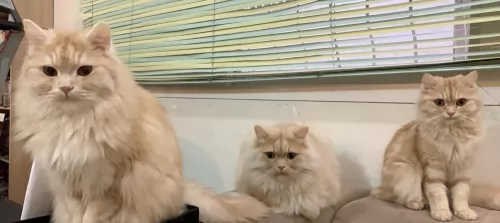 Your Asian Semi-Longhair will require regular deworming.
Your Asian Semi-Longhair will require regular deworming.
Keep your cat’s vaccines up to date.
The Asian Semi-longhair has moderate to long hair, and it’s a cat that sheds quite a bit so use a soft brush to brush the coat gently twice a week.
Have your cat spayed or neutered as this can prevent unwanted kittens. Not only this, doing this for your cat can be beneficial for your cat and bring out better characteristics in them. They no longer want to roam and mark territory. In the female cat it's the removal of the cat’s ovaries and uterus, and with the male cat, neutering is the removal of the cat’s testicles.
After this op, your vet will explain to you how to look after your recovering pet.
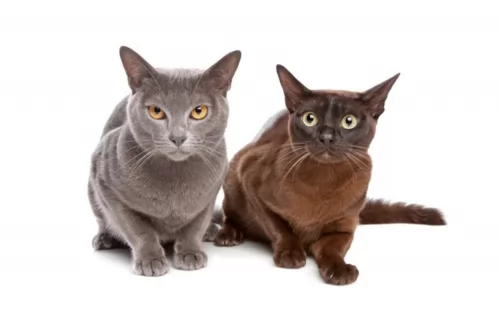 Because the European Burmese is a very affectionate, loyal cat, and because they thrive on the companionship of their human family, you owe it to him to provide him with consistent companionship. They are friendly cats and will be amicable to visitors to the home too.
Because the European Burmese is a very affectionate, loyal cat, and because they thrive on the companionship of their human family, you owe it to him to provide him with consistent companionship. They are friendly cats and will be amicable to visitors to the home too.
Scratching is a natural behavior of pets so instead of becoming angry with your cat when he scratches on your furniture, provide him with a scratching post.
You can also learn how to carefully clip your cat's nails, otherwise a professional cat groomer can do it for you.
It’s not always easy keeping a cat indoors and that is why neutering or spaying becomes important to avoid unwanted kittens. It makes your European Burmese a more balanced cat and it has a host of health benefits too.
It can’t be stressed enough how important good food is for the health of people and animals. The European Burmese needs top quality food high in proteins and meat to remain healthy.
If you feed your cat human food or food high in carbs, expect to spend a lot on vet fees.
Make sure your pet enjoys his food but that it is also nutritious and in the right portions to avoid obesity.
Kittens will eat 4 bowls of food a day and then progress to 2 bowls of food after the cat turns one year of age.